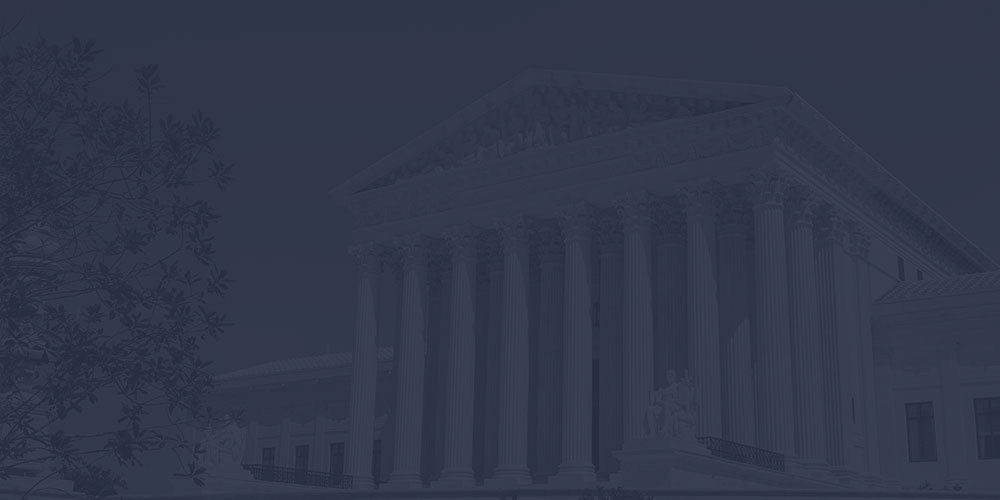Every year hundreds of high school students across Missouri bunker down for over a month and participate in mock trials consisting of fictitious facts and characters. Attorneys, judges, and those with teens who participate in the event know all too well of this, as we receive plenty of notifications requesting help for the local competition. Some of our very own firm members, such as James Gottschalk and Avery Lubbes, have offered their time as mock judges.
As of late, we have been able to get a closer look into the effort that is put into mock trials by the members of the Francis Howell North High School (“FHNHS”) mock trial team. One of our associate attorneys, Zachary Walker, began attending practices and tournament rounds with the students, working with them to sharpen their oral advocacy skills with the goal of a repeat run at the state championship. Zach was able to see the behind-the-scenes work that goes into the event. He observed student directs, crosses, as well as opening and closing statements. In between, he would give constructive feedback on things that they did well and things that may be more effective.
This year’s case is Charlie W. McCall v. Flynet AI Systems Trucking Corporation, d/b/a FASTCorp. It is a civil products liability case of an AI commercial vehicle delivery done wrong. The defendant, FASTCorp, is the manufacturer of an automated commercial truck. The truck was delivering pigs to a local farm in Missouri when the plaintiff, a commercial carrier operator, crested a hill. However, the plaintiff did not anticipate the FASTCorp truck to be blocking the bottom of the hill during its delivery. You can guess what happened next.
On top of eight-hour school days and all the other extracurricular activities that high school students are a part of, the FHNHS students put in hours every week after school to perfect their strategies. The dedication and effort provided by the students was especially critical for this part of the year: the regional tournament. Think of it like the playoffs in your favorite American sport. If your team does well enough, you move on to the next round. In December and January, the students work overtime to ensure that their speeches, examinations, and objections are polished.
The real work comes from the months of preparation beforehand. Every year around October, high school students from across the state are given the same fictitious case packet which contains a petition, an answer, various court orders, stipulations, and all the depositions and exhibits containing the over-the-top facts of the case. Like real litigators, they spend days analyzing testimony and documents — just a tad less time-intensive. The depositions, consisting of only about a dozen pages, contain short and concise statements that culminate into the basic elements of various civil torts or crimes, depending on the type of case the drafters (The Bar Association of Metropolitan St. Louis) come up with.
After reviewing the materials, the students and coaches brainstorm various theories and themes that fit neatly with the facts of the case. As they must try both sides of the case, the teams do this process for both the plaintiff/state and the defense. Then the fun begins. Some of the students act as attorneys while others play witnesses. Teams may develop witnesses with diverse backgrounds and characteristics. However, they only have a couple dozen minutes for three witnesses in one case-in-chief to elicit facts that attack the bias and credibility of other witnesses, and paint the story of the accident. This year, the students are also tasked with the development of expert testimony about the Federal Motor Carrier Safety Regulations and autonomous delivery trucks.
During the off-season, teams compete against each other and may even set up scrimmages with other schools to practice for regionals. In the process, witnesses develop an entertaining, but believable character. The attorneys sharpen their objections using a slightly modified version of the Federal Rule of Evidence. By the end of the off-season, teams are ready to present the case they have worked months for in the regional tournament.
This month, high schoolers across Missouri will present their case to members of the Missouri legal community and proud parents and coaches. All the work and effort by the students and the volunteers of the Missouri legal community help provide an early start for the development of young legal minds and a foundational understanding of how to present a case in a courtroom. The time everyone puts into volunteering for these events will surely lead to a better-equipped future legal generation. Or, at the very least, those underclassmen will get one more crack at a new case next year.



